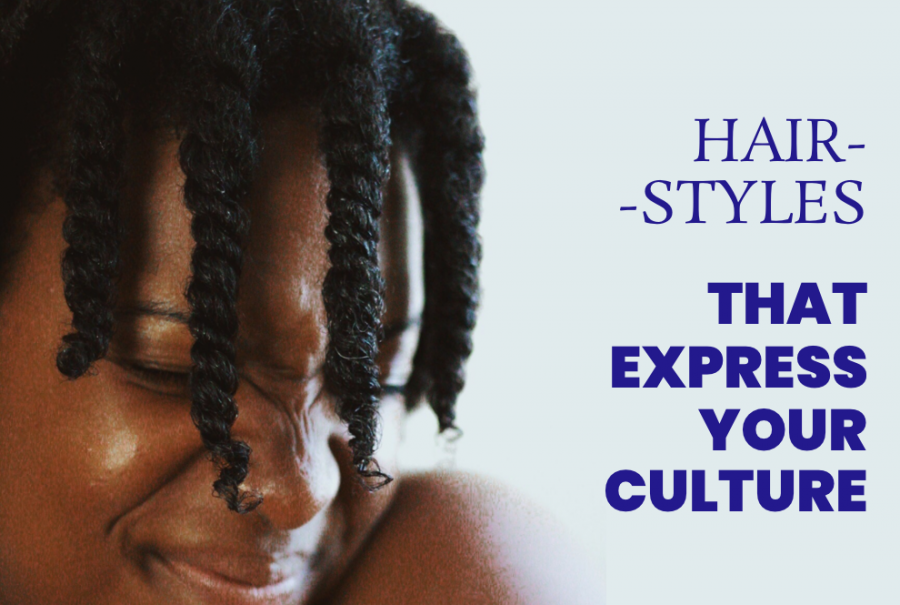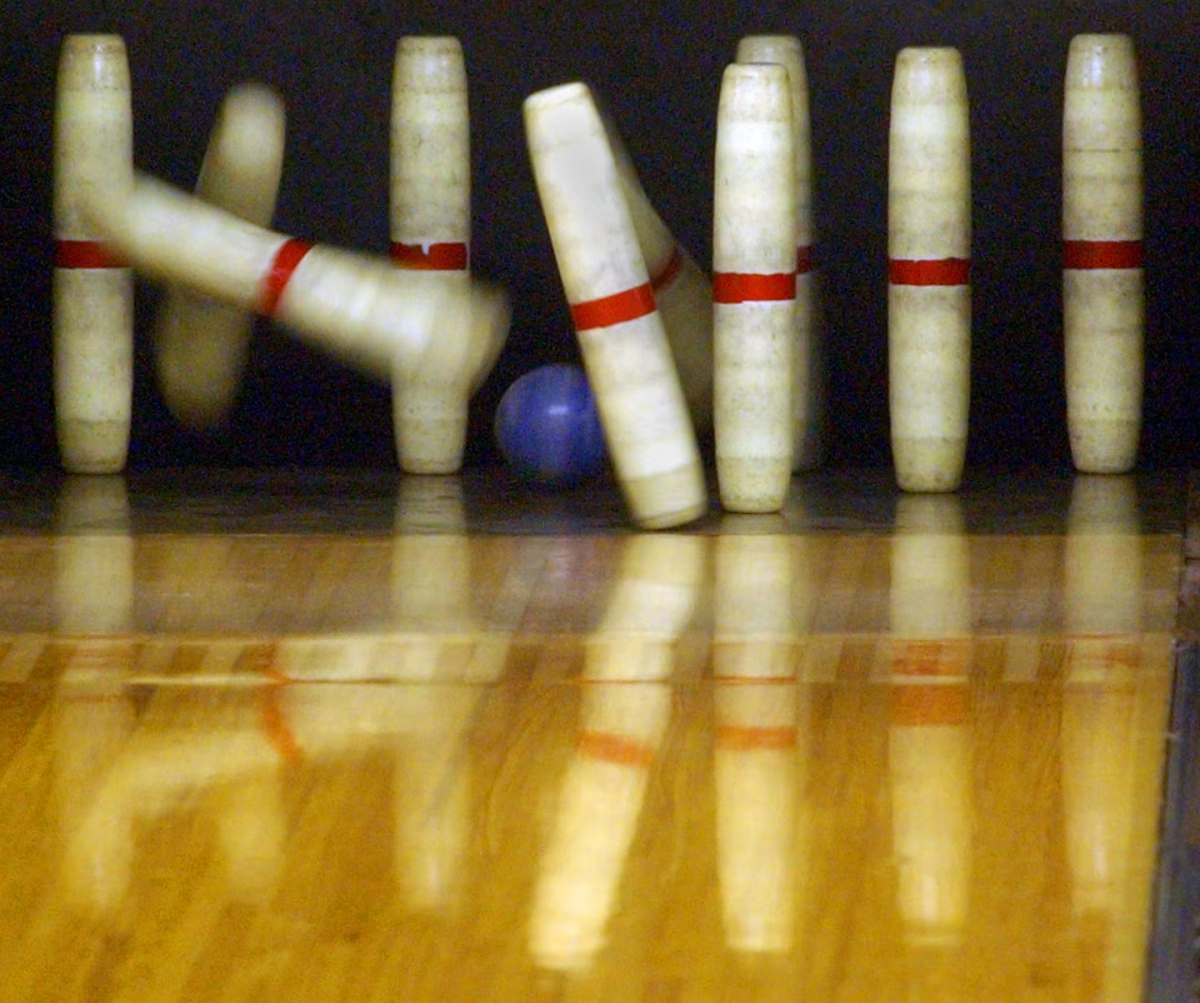“Wow, I’ve never seen this type of hair before! I have to touch it.”
“Can I touch your hair? It’s just so nice.”
“That’s not your real hair, right?”
These are things I hear all the time, and sometimes the person doesn’t even ask- they just go ahead and touch my hair. Lately, there has been a lot of backlash on women of color for being upset when a person not of color asks to touch their hair. As a Black woman myself, I can say that our reasoning is not to intentionally anger others – it is because we want to feel like human beings ourselves.
Our physical characteristics have come to develop today because of our ancestors- this goes for everyone. Those who lived in colder climates had lighter skin tones because they weren’t exposed to the sunlight very often, and they have smaller facial features to help block some of the cold air coming in. As for the warmer climates, darker skin tone resulted from constant and intense sunlight, as well as larger facial features. These are all things we learn in school growing up, but hair isn’t talked about as often – probably because it comes down to the genes of your specific family tree rather than general scientific fact.
There are so many hair types out there, but with Black women specifically, curly, wavy and kinky hair are common. Throughout the entire spectrum of types of curls with Black women, people not of color seemed to be fascinated with the look of our hair. While there is nothing wrong with giving someone a compliment, there are boundaries – especially if you are a stranger. Wanting to play with our hair makes us feel like we are on display for your entertainment, or an animal in the zoo that you want to pet.
“I don’t ask you to touch your hair, so why are you petting me?” said Rajaiah Jones, a junior communication major at the University of Massachusetts.
Madeline Gloade, a legal studies and English junior, said she had issues with other students touching her hair while she was growing up.
“My school was majority white, and whenever I would tell the kids to stop touching my hair, they’d say I’m just an angry Black girl,” Gloade said.
Another large part of Black women’s hair is protective hairstyles. Protective hairstyles include wigs, weaves, box braids, crochet, etc. Black women often invest in protective hairstyles, which helps give the natural curls a break from constantly styling, heat damage and more.
Specifically, braids trace all the way back to 3500 BC, which helped with tribe identification. It continues to be a prominent expression of style for women of color, as well as provide protection for their natural hair. While the natural hair rests in the braids, it’s given time to grow and repair without daily manipulation of hair products.
Women not of color have caught on to the cultural trend, and the overall response is negative, deeming the trend “cultural appropriation.” Cultural appropriation is defined as “the unacknowledged or inappropriate adoption of the customs, practices, ideas, etc. of one people or society by members of another and typically more dominant people or society.”
Applying this to the hairstyles of women of color, it seemed the history behind it is ignored, while women not of color adopt the trend as their own – most of the time without acknowledgement of its true background.
This goes into the ongoing argument of people not of color admiring the features of minorities, and going so far to physically change their bodies to match. Some common characteristics of women of color include wider noses, full lips, full hips and curves. As cosmetic surgery continues to be on the rise, the natural features found on women of color seem to the be the new template for a physical adjustment.
Although there is never anything wrong with changing your body to your liking for your own happiness, the hatred of the same features women of color are born with is still prominent. They are considered ugly, while others are praised.
Of course, this isn’t pertaining to every single case, but it seems to be more common than not. There needs to be more appreciation for women of color and their qualities, especially Black women.
As Malcolm X once stated, “the most disrespected woman in America, is the Black Woman. The most unprotected person in America is the Black Woman. The most neglected person in America, is the Black Woman.”
As we younger generations continue to become more open minded, we need to stay educated as well.
Isabelle Marseille can be reached at [email protected].




















Marie-France • Jan 29, 2019 at 10:35 pm
It is disheartening that such a well-written and important article needs to be defended still.
The most disrespected and ridiculed woman is the black woman. And reading these unputting comments the black is also always need a shield to protect herself from the likes of Asian girl.
Asian Girl – this article is written to educate people like you. Quick and easy to spill their unwelcome comments that further shows your ignorance. I thought that I would reiterate the message here that you missed. Our hair is our property, ask before you touch. And we reserve the right to say no!
To Isabelle – thank you for your light. This article is a necessity. A dialogue worth having for as long as we have to defend our blackness.
Marie-France • Jan 29, 2019 at 9:54 pm
It is disheartening that such a thoughtful and enlightening article needs to be defended.
And to you Asian girl – this article is not written for you. Your negative energy would have been better spent on educating yourself instead of spilling your unwanted comments. And I form allegiance with all the others to echo once more « STAY IN YOUR LANE. »
And Isabelle – Thank You for your light and for writing about important issues. Your article has made an impact!
Fabie • Jan 29, 2019 at 4:23 pm
Excellent article . Of course the racists can’t help themselves. One thing I can say to Miss Asian, don’t touch a black girls hair. Period .
Miche • Jan 29, 2019 at 2:47 pm
Well written and very accurate. Black women are constantly made exotic and disassociated from actual human experience. The touching of our hair is just one example . In what world would it ever be okay to just invade someone’s personal space without it every being okay? Of course for the privileged they can’t understand. But it becomes acceptable for people to do this to us because subconsciously black women are not considered equally as human. Only good for pleasure, only for body parts, only for cultural fantasies, entertaining and exotic experiences.
Thanks for articulating what’s wrong with this. Thank you for bringing about situational awareness.
Madeline • Jan 28, 2019 at 7:36 pm
Dear “open-minded Asian”,
Dont try to tear down a BLACK WOMAN’S piece about BLACK CULTURE because you dont fully grasp it, mind you it’s a culture that you are not EVEN A PART OF. This article addresses a big problem in the black community, and you would have understood that if you actually took the time to research the topic before posting your sad excuse of a rebuttal. Try educating yourself first before trying to discuss a culture you and your non-black hair know nothing about.
Stephanie • Jan 28, 2019 at 4:30 pm
A very well written piece that I’m sure women of color, everywhere, can relate to. I look forward to reading more pieces from this author!
Zöe • Jan 28, 2019 at 3:11 pm
Ok Stephanie:
First off, you’re Asian. This article pertains to black women. As a young, black girl myself I feel like this is extremely important. As a woman of color, which you are too sweetie, we are alienated from society already. Touching our hair without express permission is treating us like we are animals.
A dog can not give permission; it can’t talk. We can and you need to ask us to touch our hair. I don’t see anyone coming up to you asking what your straight hair feels like, honey.
You said it yourself : YOU ASKED THE BALD GUY. A S K E D. If I’m reading that correctly, you obtained permission from the person who’s head was being touched.
Like that was the whole point of the article. Do NOT touch our hair without permission like this is a zoo.
Get your facts straight. As black women we experience this and it is far from irrelevant.
You most likely have straight hair. No white person is going to ask to touch your hair. They already have it. You are privileged and uneducated.
Carole • Jan 28, 2019 at 2:45 pm
Asian person,
I suggest you stay in your lane. You have no clue on what this article is all about. So, go educate yourself on racism and the treatment of black people in general. Who the hell are you to even talk when most of you stick together like hives and won’t even allow diversity in your communities?
This article needed to be written and I applaud Ms Marseille for her courage to speak up. You can learn something ftom her instead of your ridiculous criticism.
Again, stay in your freaking lane!
Stephanie • Jan 28, 2019 at 11:41 am
Obviously you wouldn’t get it because you’re NOT black so you don’t know the history of black hair and the shit we’ve gotten for it for centuries on our hair. In fact we there is still so many negative stigmas attached to kinky hair. If you were as open minded as you claim you are you’d know that this article describes the experiences of black peoples hair. How is it a mockery if it’s an actual issue we go through, which you wouldn’t know because again you are not black, no white person is asking you to touch your straight hair and asking how “it gets like that” . You most definitely won’t be asked by your employer to “fix” your hair to conform. I’m very sure you’ve never been suspended: expelled from school because your hair was an issue like hundreds of kids across America. So don’t you talk like this isn’t an issue. Micro-agressions such as this are just as important as someone using the N word. All the “little”instances of discrimination shine a light on a much bigger issue which is the normalization of Eurocentric features and racism. The point of the matter is our hair isn’t an exotic animal that you oh so need to touch. It’s an issue point blank. Just because you’ve never experienced it to this level (or any level for that matter) donesnt make the issue irrelevant. Everyone is intitled to their own opinion but your comment is redundant and extremely ignorant.
amy • Jan 26, 2019 at 8:16 pm
I have to say this article is really pathetic… Do you hear bald men writing an op-ed, quoting malcom x, invoking history and claiming racism because.. .. . . people want to see what their bald head feels like?
I asked a bald guy what his head felt like once and he was flattered and let me touch his head. I am sure he is not traumatized for life and became a scholar on … hair so he could ‘educate’ us and about bald men and their qualities.
I am an asian, like most people I am open-minded, etc but this is just making a mockery of serious racial issues. Why dont you talk about real issues like black people being called the N word, like crime in black communities, like being denied a job, etc… Not the struggles of the african-amerian women because somebody asked to touch their hair!